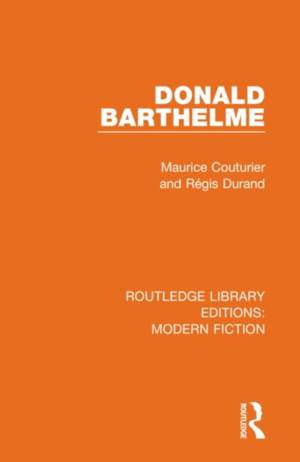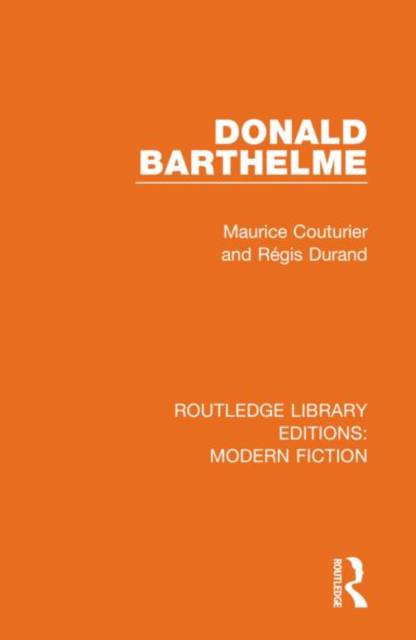
- Retrait gratuit dans votre magasin Club
- 7.000.000 titres dans notre catalogue
- Payer en toute sécurité
- Toujours un magasin près de chez vous
- Retrait gratuit dans votre magasin Club
- 7.000.0000 titres dans notre catalogue
- Payer en toute sécurité
- Toujours un magasin près de chez vous
Description
In the early 1980s Donald Barthelme was widely recognized in the United States as one of the major figures in contemporary postmodernism, a key and central experimental writer. In this study, originally published in 1982, two leading critics present Donald Barthelme's work in its most radical and innovative aspects. Their essay combines textual analysis, critical theory and cultural awareness and aims at investigating the impact of Barthelme's fictions on the reader and at defining the type of reading experience and pleasure such fictions can produce. Included in the aspects of Donald Barthelme's work discussed here are his use of language, his sense of comedy, his parody, his vision of the modern self as fragmented and displaced, and his relation to psychoanalysis and other forms of art.
Spécifications
Parties prenantes
- Auteur(s) :
- Editeur:
Contenu
- Nombre de pages :
- 82
- Langue:
- Anglais
- Collection :
- Tome:
- n° 11
Caractéristiques
- EAN:
- 9780367343569
- Date de parution :
- 18-10-19
- Format:
- Livre relié
- Format numérique:
- Genaaid
- Dimensions :
- 129 mm x 198 mm
- Poids :
- 199 g

Les avis
Nous publions uniquement les avis qui respectent les conditions requises. Consultez nos conditions pour les avis.






